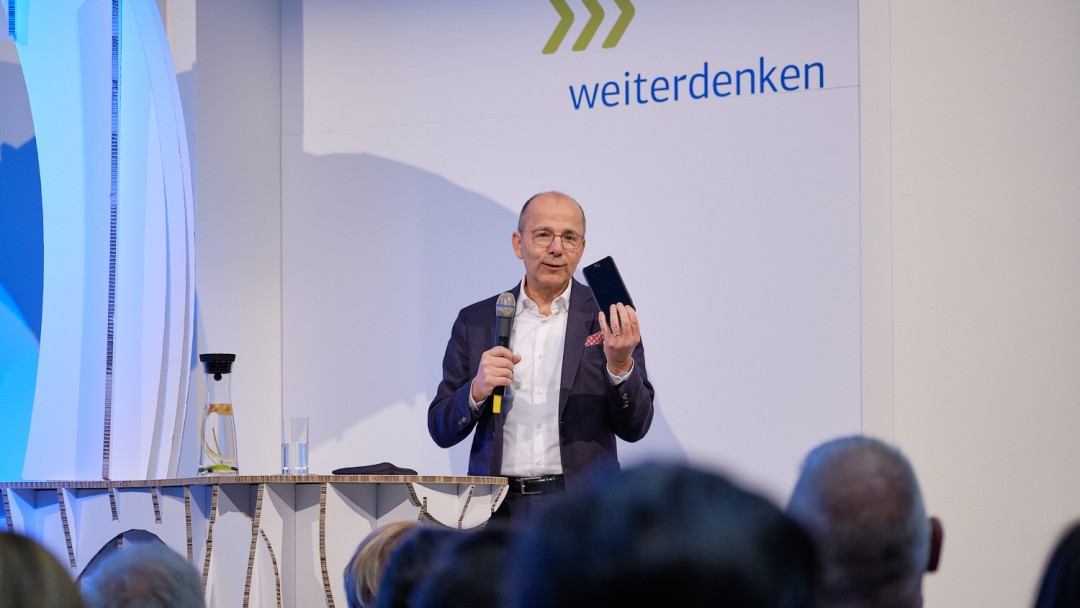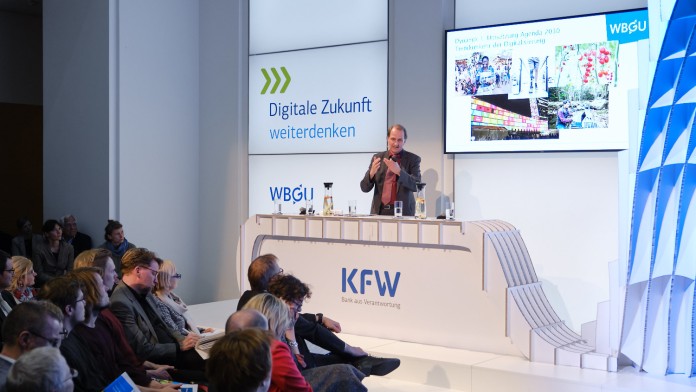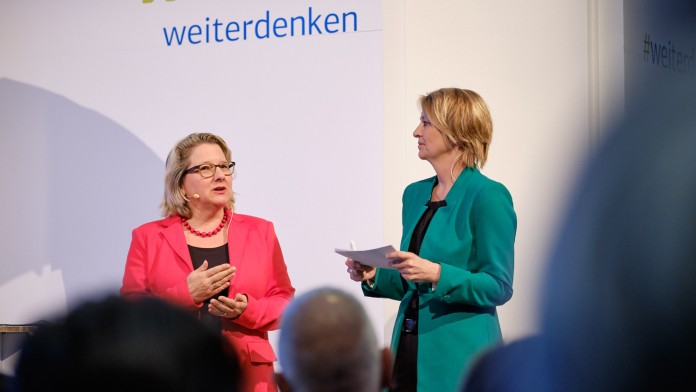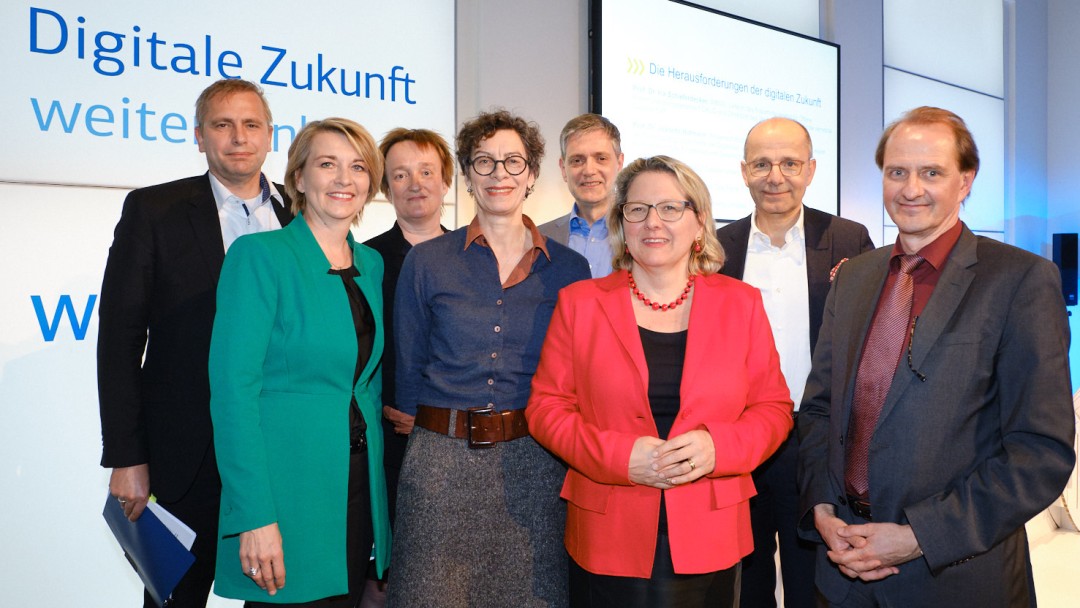News from 2019-04-17 / KfW Development Bank, Group
Thinking one step ahead in the digital future – Can digital technologies be used to advance the 2030 Agenda and climate protection?

How can digital technologies drive the global transition to sustainability? In what areas do they hinder this transformation? What does digital transformation mean for the 2030 Agenda for Sustainable Development and for climate protection?
At the invitation of the KfW office in Berlin and the German Advisory Council on Global Change (Wissenschaftlicher Beirat der Bundesregierung Globale Umweltveränderungen – WBGU), over 160 representatives from government, parliament, civil society and science came together on 11 April to discuss these very issues.
In his welcome address, KfW Chief Executive Officer, Dr Günther Bräunig, stressed that digitalisation is a core issue for KfW and that it will continue unwaveringly on its current path of implementing new technologies that help to achieve sustainability and climate targets.

At the event, which took place in the historic banking hall of the KfW Berlin branch, the results and recommendations for action from the latest expert opinion issued by the WBGU entitled "Our joint digital future" (Unsere gemeinsame digitale Zukunft) were presented to the general public for the first time. Prof. Dr Dirk Messner, Chair of the WBGU, highlighted that the full extent of possibilities offered by digitalisation in achieving sustainability and climate targets had not yet been exploited. He went on to say that shaping digitalisation proactively over the long term was essential in order to develop strategies and concepts for sustainability. His appeal: "We must harness trends to ensure that sustainability prevails!"

In her comment on the expert opinion, German Federal Minister of the Environment, Svenja Schulze, spoke out in favour of a sustainable digitalisation agenda from the Federal Ministry for the Environment, Nature Conservation and Nuclear Safety: "In the past, discussions on the question of digitalisation have placed too much focus on technology," she said. "Digitalisation does not automatically work in favour of the environment. We must act now!" She went on to highlight that the expert opinion quite rightly demands that politics become more involved in shaping digitalisation.
In an animated panel discussion moderated by TV journalist Anke Plättner, the participants seized upon the broad lines of the expert opinion. Prof. Dr Ina Schieferdecker, WBGU member, Head of the Fraunhofer Institute for Open Communication Systems and Director of the Weizenbaum Institute for the Networked Society, stressed that the climate and sustainability targets cannot be attained without digitalisation. She added that, in order to fully exploit its potential, part of the necessary shaping of digitalisation must be regulated by public law.
Prof. Dr Jeanette Hofmann heads the research group "Politics of Digitalization" and is Director of the Alexander von Humboldt Institute for Internet and Society. As a representative of social research, her focus was on the risks that digitalisation poses to society. She calls for consideration of the loss of privacy in the age of digitalisation.
Furthermore, examples of areas where digitalisation has been applied successfully illustrated the possibilities for a sustainable transition. One such example was provided by Jan Schönig, Director for Urban Development & Smart Cities, and revealed how Siemens AG is making use of the latest technologies. In addition, Piet Kleffmann, KfW employee and Head of the TruBudget Task Force, discussed the blockchain-based platform of the same name, which permits the secure and efficient deployment of donor funds in partner countries. KfW's TruBudget solution is an Open Source software available to the public free of charge, thereby making an important contribution to shaping digitalisation in favour of development cooperation.
The intense round of discussions focused on the issue of privacy and digitalisation, the astounding rate at which digitalisation is progressing, as well as the need for it to be shaped quickly and the definition of rules that are applicable over the long term. The intense debate not only revealed how important digitalisation is for achieving the targets of the 2030 Agenda and climate protection, but also the need for it to be actively shaped. To this effect, KfW will also consider all these aspects and foster the potential of new technologies.


Share page
To share the content of this page with your network, click on one of the icons below.
Note on data protection: When you share content, your personal data is transferred to the selected network.
Data protection
Alternatively, you can also copy the short link: https://www.kfw-entwicklungsbank.de/s/enzBWrMC.B-dA
Copy link Link copied